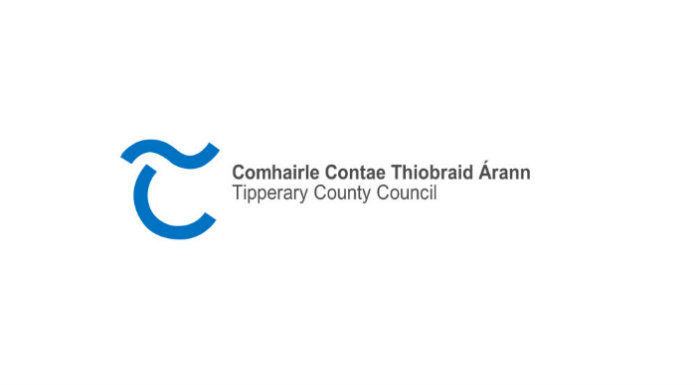The Association for Irish Local Government has called for a speedy decision on the salary of a County Councillor.
There’s cross-party support for an increase to their pay – a decision which the AILG says needs to be clarified soon so as to properly inform those who are considering running for the local elections in May of 2019.
Currently Councillors are paid €17,060 per year, with a €5,000 of a vouched expenses allowance.
We emailed every Tipperary County Councillor and TD to ask their opinions. The replies can be seen below in chronological order:
Cllr Andy Moloney – Independent Cllr for the Clonmel district:
“We are governed by national pay scale so have to accept it.”
Cllr Mary Hanna Hourigan – Fine Gael Cllr for the Cashel-Tipperary district, who is the Vice President of the Association of Irish Local Government forwarded their statement (which can be read at the bottom of the page) to Tipp FM. Independent Cllr for the same district, Cllr Tom Wood also did this.
Cllr Martin Browne – Sinn Fein Cllr for the Cashel-Tipperary district:
“..On my own behalf I’d welcome an increase, as I depend solely on the income from the council. I think an increase up to maybe €500pw would reflect the hours which Cllr’s put into doing their work. In my opinion it would help level the field for all Cllr’s.
It needs to be clarified if Cllr’s would now be classed as in a full time and what that would entail as far as social welfare and pensions are concerned. I accept that while it would suit me and my circumstances it probably won’t suit anyone who is in full time employment at present.
With this rise if it comes there needs to be a change in the attitude of some people who are not very good time keepers, if it’s a full time job cllrs will have to clock in at meetings and stay for the full meeting, if it comes in the allowance for been chair of the full or plenary councils and some of the SPCs should be done away with.”
Cllr John Hogan – Fianna Fail Cllr for the Templemore-Thurles district:
“I believe that the current rate of pay is too much for some Councillors and not half enough for others because of the varying amounts of time spent doing the job I don’t think the increased pay should be introduced without some changes.
Some minimum standards should be required if the role is to be paid at significantly higher rates. Understanding and experience of governance, leadership, financial planning, environmental,planning, housing and roads issues should be mandatory before a candidate could contest the local elections in my view. Many Councillors operate to a very high standard and are working for way below the minimum wage when one considers the hours that they spendfulfilling their role. However this is not true for all Councillors.
Also if this higher salary is agreed in my view the Councillors should be required to clock in for an agreed number of hours each week dealing with issues of the local Authority. Currently when we hold workshops the attendance is very poor and as the records will show from last weeks Thurles /Templemore Municipal district some Councillors have little or no understanding or acceptance of the workings of the Council. I believe that the time wasted by the Councillors at that meeting cost the tax payer a significant amount of money.
So Councillors , in my view, should be value for money and be proven competent,responsible and qualified if they are to seek extra pay. “
Cllr Catherine Carey – Sinn Fein Cllr for the Clonmel district:
“There really isn’t that much stability in our role as Cllrs. I wouldn’t be happy to give up my HSE job to be a full time Cllr. Politics can be very unpredictable”.
Cllr David Dunne – Sinn Fein Cllr for the Carrick-on-Suir district:
“First off a one size solution to the pay and conditions of Cllr’s won’t work for everyone but we do need a level playing field so no one is excluded from standing for and been a Cllr .It should be for all walks of life men, women and everyone no matter how rich or poor they are .
“For me as a shift worker in a factory doing both night and day work the hardest thing is been able to carry out my work as a Cllr’s and I work at it seven days a week 24/7. So for me the pay is not the the upmost importance’s but if a civic duty clause was put it where the company would have to give me unpaid leave from my job to attend council meetings and other duty’s I have to do would be a great help to me.
“I would like to say with the advance of technology the life as a Cllr has got both harder and easier at the same time .I am no[w] contactable 24/7 through social media and held to account by social media rightly or wrongly. But the use of mobile phones and emails plus google for doing research has helped a lot.”
Cllr Seamie Morris – Independent Cllr for the Nenagh district:
“This is an exercise in papering over the cracks. Most politicians go into politics from community activism and not to enrich themselves.
On my part I got elected as a town Cllr with very little pay but I could serve my town with distinction and to the best of my ability. The loss of town councils is now been seen across our towns in Tipperary in the state of our footpaths and roads.
In fact the amalgamation has been a disaster in terms of local democracy. An example will be witnessed at today’s meeting where a strongly opposed part 8 planning application in Nenagh could possible be voted through by cllrs who have no knowledge of the reasons why the people of the town opposed it in the first place.
Also one of the key proposals of the putting people first document in 2014 in terms of giving cllrs power was the power to set a local Differential rents scheme has still not been enacted 5 years later which was used by the Tipperary CEO to devastating effect with his new rents scheme.
The AILG and senators need to use their energy in revisiting the reopening of town council.s and bring back democracy to the grassroots.”
Deputy Michael Lowry – Independent TD for Tipperary
“It is my view that elected Councillors should be properly recompensed for their work on behalf of the public.
It is a time consuming demanding job.
To be effective a Councillor must prioritise the role and commit substantial time to research issues, meet individuals, community groups and act as a liaison between the authorities and the public.
Since the abolition of Town Councils the function of County Councillors and the expectations of the public have increased significantly.”
Statement from the Association of Irish Local Government, forwarded to Tipp FM by Cllr Mary Hanna Hourigan (Vice President of the AILG) and Cllr Tom Wood.
“Further to the publication of the Interim Report on the Independent Review of the Role and Remuneration of Local Authority Elected Members from Ms Sara Moorhead SC, which was released earlier this week and was subject to a debate before the Joint Committee on Housing, Planning and Local Government on Wednesday last 5th December 2018
The AILG considered the report at its Executive Committee meeting held yesterday 6th December and while encouraged that the interim report acknowledges that the issue of the remuneration of local authority elected members as one that is of huge importance to elected members and also that the report recognises the important statutory and representative role that our members carry out, the AILG Executive have reiterated to the Minister the urgent need to bring this review to a conclusion as soon as possible.
The AILG Executive pointed out that despite clear commitments received previously, the interim report lacks any indication of what level of remuneration elected members can expect going forward. This is particularly frustrating as many members have been waiting for the outcome of the interim report to make a final decision in relation to the local elections next year.
The AILG Executive also expressed concern at their meeting that the final report will not be published until the end of Q1 2019. However, the terms of reference also state that when review is completed, its findings will be the subject of discussion between the Departments of Housing, Planning and Local Government and Public Expenditure and Reform in the context of the arrangements provided for elected members. We therefore have concerns that it could be a period after Q1 2019 before a final decision is made and elected members know exactly what their terms and conditions will be post June 2019.
We have today written to both Minister John Paul Phelan TD & to Ms. Sara Moorhead with a detailed response to the interim report with a request for an urgent meeting with them to address our concerns with the report and the timescale going forward for the completion of this review.”








